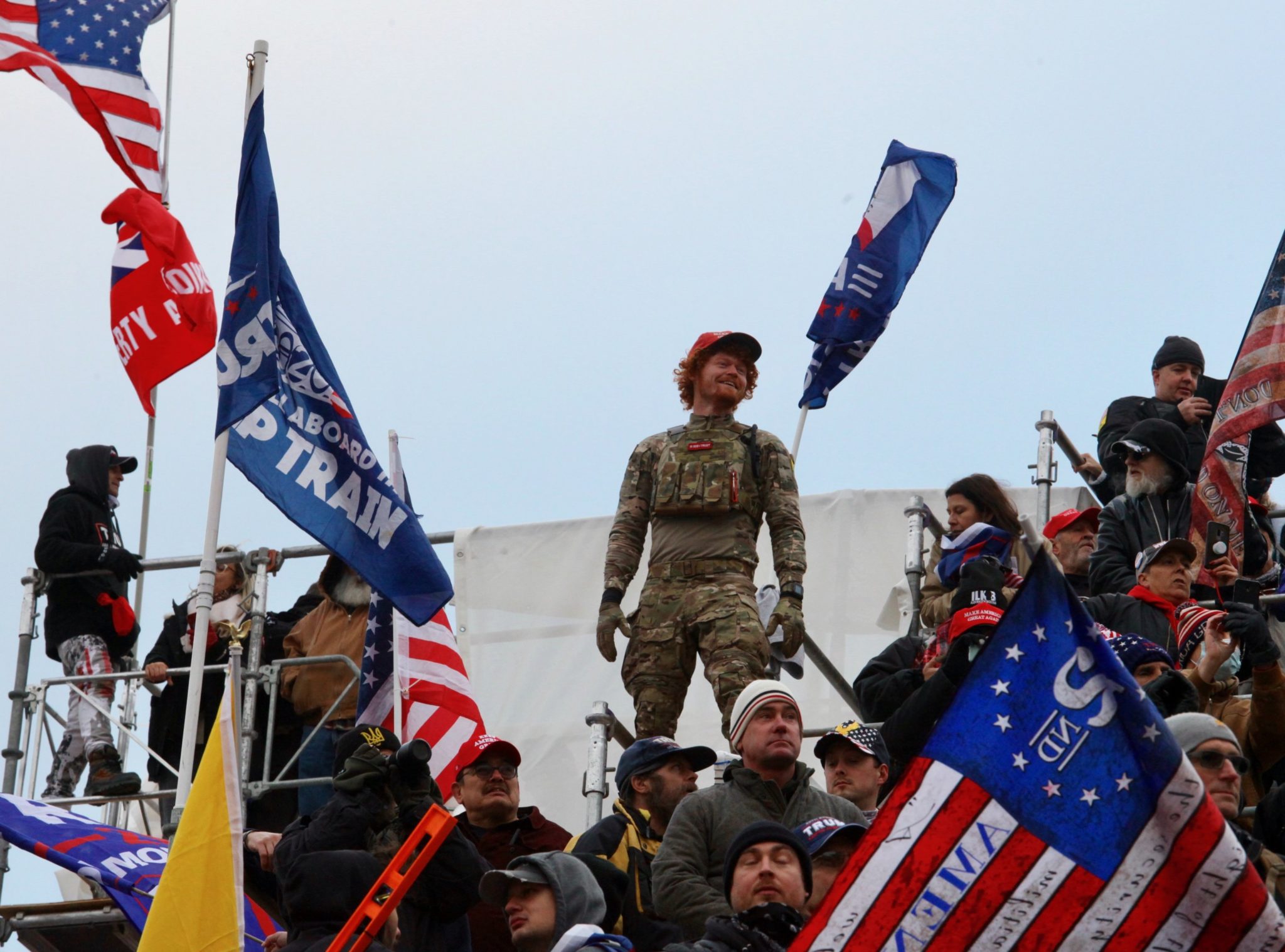As of Thursday morning, only 68 people had been arrested by the Metropolitan Police Department, and 14 by the Capitol Police, for taking part in Wednesday’s violent storming of the U.S. Capitol building and related mayhem. The FBI has put out a call for tips and digital media from the public that could help identify more perpetrators. In a statement, acting U.S. Attorney General Jeffrey Rosen called the assault “an intolerable attack on a fundamental institution of our democracy” and vowed to “enforce the laws of our land.” Which is to say, more arrests should be coming.
But what charges, exactly, will the MAGA insurrectionists face? Well, according to former federal prosecutors, there’s quite a variety to choose from—ranging from local offenses, such as destruction of property, to federal crimes of sedition that can carry penalties of decades in prison.
“Seditious conspiracy is the most serious charge. Are people trying to impede the principal function of our democracy? Are they hindering the execution of laws? That’s really significant if this was a concerted effort, which it looks like it could be, to actually try to prevent the representatives and senators from certifying the election results,” says Ronald Machen, who served as U.S. Attorney for DC during the Obama administration. “Very rarely would you have a case like this, but that’s what seditious conspiracy is designed for. These things were put on the books for back in the day. You just don’t think about these things happening, a mob storming the Capitol, in modern times.”
Seditious conspiracy carries a penalty of up to 20 years in prison. A lesser charge that Machen says could broadly apply is the federal rioting statue, which states that if you participate in, incite, or aid and abet a riot, you can face up to five years in prison.
Were he still the District’s top prosecutor, Machen says, “I would be seeking to charge everyone who entered the Capitol.” He envisions forming a task force, and mapping out the “whole menu of potential charges.” In the event that mob members could soon leave town, Machen says one strategy would be to charge them with easier-to-prove local crimes first, such as destruction of property and unlawful entry, then escalate the charges where appropriate as the investigation develops.
Another former federal prosecutor, Barbara Van Gelder, points to a federal law against engaging in violence toward people or property within “a restricted building or grounds,” or entering the building or grounds with the intent to disrupt government business. “That’s the big one that I would use to get as many people as possible,” she says. Breaking this particular law can send you to jail for up to a decade.
As for potential terrorism charges, Machen explains that there actually aren’t any federal domestic terrorism laws that would work. However, he says, “You have DC terrorism charges [that could apply]. Obviously we had pipe bombs here, so you’d have to look at that as a potential charge.” (DC terrorism laws were used, for example, against the shooter who attacked the Family Research Council in 2012.)
The fact that dozens of Capitol Police officers were reportedly injured by MAGAs wielding pipes and other weapons could also obviously increase the nature of the charges against the insurrectionists, the former prosecutors say. “There has to be a strong response,” says Machen. “People have to understand there are serious repercussions for this.”



















